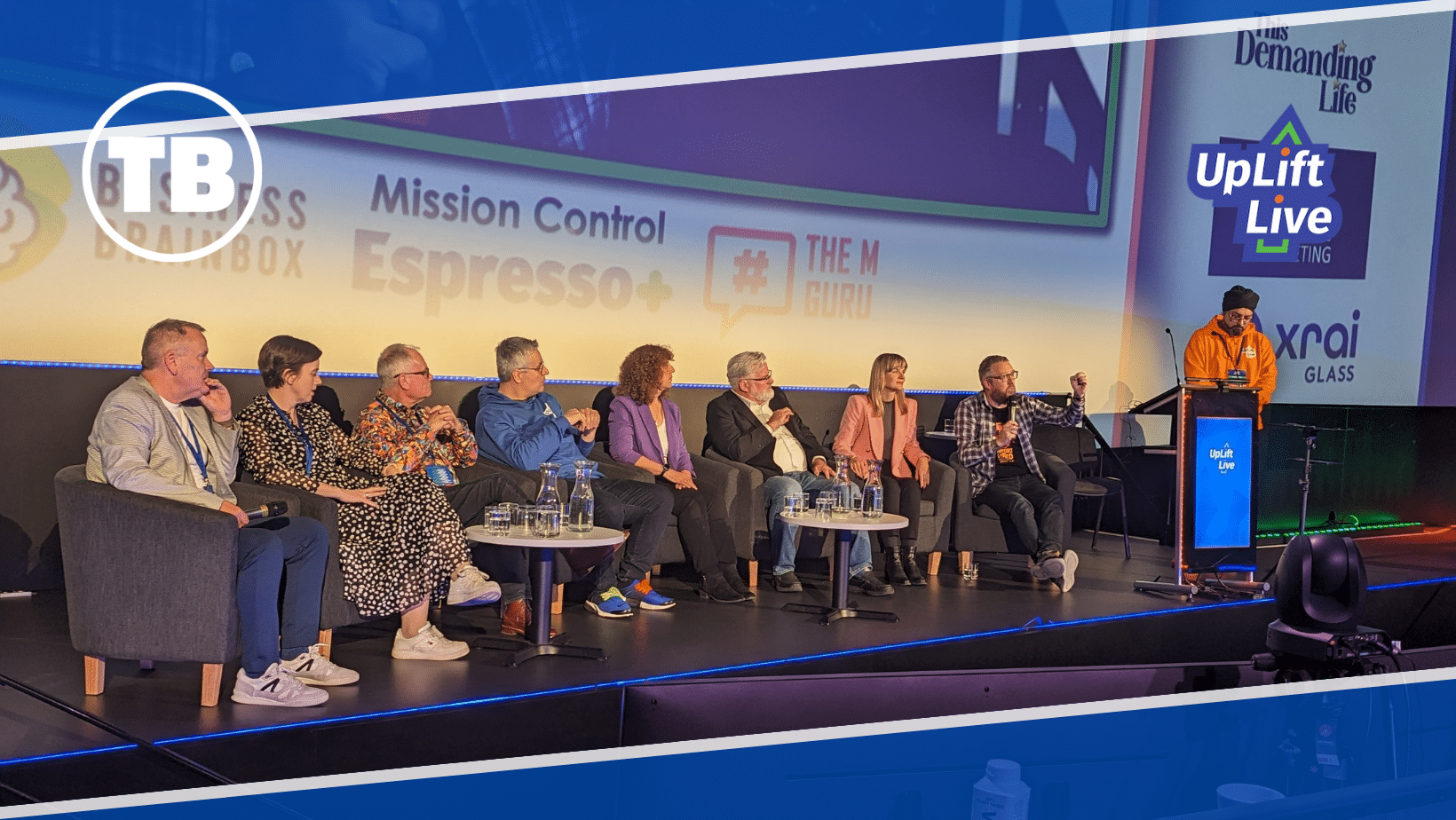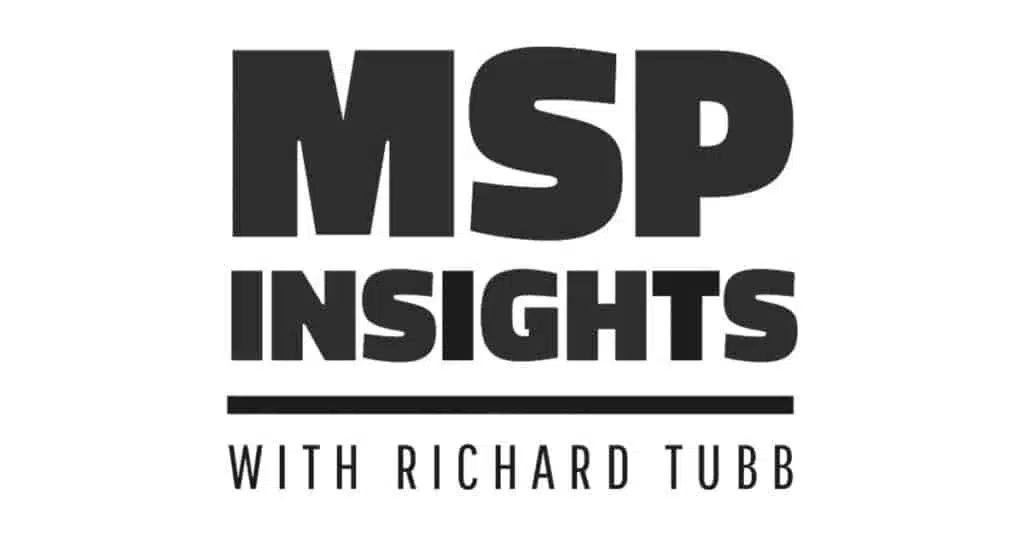 One of the conversations I regularly have with my peers is about the Sales Process, and converting Prospects into Clients. During that conversation, the topic that always comes up is that of how we tackle writing Sales Proposals for clients.
One of the conversations I regularly have with my peers is about the Sales Process, and converting Prospects into Clients. During that conversation, the topic that always comes up is that of how we tackle writing Sales Proposals for clients.
Here’s my quick thoughts on the subject as someone who has learnt the hard way.
Writing a proposal is expensive. It’s time consuming. For most, it’s tedious. Sure, you can use products that will help reduce the time spent on this, but at the end of the day you want to avoid it wherever possible.
When is a Proposal necessary?
There are some occasions where writing a proposal is necessary – where you genuinely can’t meet with the decision makers (a Trustee Board for a Charity perhaps) but typically, there should be no need for the proposal if you’ve sat down with the Decision maker – and by that I mean whomever signs off on the purchase – and gathered all the necessary information and answered all of their questions. That means understanding the prospects true pain (not just what they tell you), being aware of their true budget (if they say they don’t have a budget, ask them how much they’d like NOT to spend…) and understanding their decision making process (i.e. who else needs to be involved in this conversation).
Prospects using proposals as an avoidance tactic
More often than not though, a request for a proposal from a prospect is simply an avoidance tactic – they probably want to say no to you, but don’t feel comfortable doing so, or they’ve decided this project isn’t so much a priority for them after all. Whatever, if you agree to write that proposal, you’re giving up your time and energy with a virtually zero chance of winning the business.
Worse – many prospects ask for a proposal so they can use it as specification for the project that they can then use to shop around with your competitors. If you write this proposal, you’re in effect providing free Consultancy.
The Fear of avoiding writing proposals
I see many people avoid calling the prospect on these facts, and agreeing to do the proposal anyway, even though they have a gut feeling that they’ll not win the work. I call this “The Fear”.It’s a fear that if you don’t agree to do the proposal, you’ll offend the client, or you’ll lose the work. Therefore it’s better to just agree, invest the time in writing the proposal, and hope for the best – however slim that chance is.
If you want to continue writing proposals for work that you never win, then continue to do this. If you value your time, and don’t want to give away free consultancy, then stop writing sales proposals and let the prospect know that by uncovering the real reasons they’ve just asked for a proposal.
[tweet_box design=”default”]”If you value your time then stop writing sales proposals!”[/tweet_box]
Your time is valuable, don’t waste it!
One Litmus Test as to whether you should really agree to write a proposal is to give the prospect an honest ball-park figure for your work, and do be honest, don’t undersell yourself. If the figure is way off the budget the prospect has in his head, no amount of proposal writing will win this work. More often than not though, the prospect will be more honest with you (“That’s a little higher than I’d hoped”) and you can then go back to working on the budget requirements instead of writing and revising a proposal.
The bottom line is, your time is valuable, so don’t waste it writing un-necessary sales proposals. Instead, work on overcoming “The Fear” and only write proposals where you’ve got a genuine chance of winning work.














Comments
11 thoughts on Stop Writing Sales Proposals!
MATT
29TH APRIL 2010 18:07:00
Are you saying that you should always quote instead of propose?Of course, I'm biased - being a QuoteWerks fanboy (working with it day in day out helps!) - but there's lots of truth in what you say.Yes, you can produce (a rather generic) proposal within a couple of minutes using quoting tools .. but are you missing the point?What we're finding, mainly from tidbits from our clients; if your PROPOSAL contains 'line items' you're QUOTING. One of the best ways to put this into a sentence is "A proposal sells the business as well as the solution".A number of companies we've worked with never PROPOSE, they quote a solution, and it works for them.Other companies never QUOTE, they ALWAYS propose a solution.In our line of work, we often give a ball park figure, as you allude above, for a complete implementation of our services during a first conversation. This often goes two ways:1: It has the effect of ruling out implementations .. "oh I thought it was a cheap download". - in this case we give them a quote for the price via email (1minute job) and chase, once.2: "hmmm, I'd need to get the Financial Director involved" - in this case we invest time in demonstrating the product and occasionally visiting the client.. usually leading to writing a proposal (15minutes) and chasing, once.We're all mostly tecchies at Quintadena .. perhaps we've got something to learn too!?perhaps something there to start a debate! :)
RICHARD
29TH APRIL 2010 19:42:10
Matt - I agree with you 100% on the line item comment. At worst, your proposal (quote?) should have grouped sections with investment costs rather than line items. Ideally, you give a single bottom line for the solution as a whole.I think the definition between a quote and proposal is probably the line between selling a Commodity (Software, Hardware, etc.) and a Value Service (Implementation, Training, Migration, etc.).A commodity is easier to compare like-for-like, you have a product or item usually with a reasonably fixed specification. Most prospects therefore shop for commodity items on price.A service is much harder to compare like-for-like, often with lots of detail and different levels of value.In your world - that'd be the difference between selling a QuoteWerks license, and selling a QuoteWerks implementation.I see many SME's who will provide a Proposal that describes their service offering, and gives background on their business.I say, you should be having the conversation about who you are and why you might be a good fit for a client, and your service and why it meets the prospects pain points - all during the sales meeting with the decision maker.Bottom line - the business should probably be won or lost during the sales meeting, that is to say the prospect should have a good idea of whether they want to work with you, and can afford to work with you at the conclusion of the sales meeting, not based on a document of any sort that is delivered later.I could be wrong though - I'm just a technician who has been forced to try to sell to grow my business, rather than a trained Sales Professional! :-)
MATT
29TH APRIL 2010 19:51:05
Am I being completely ignorant in that the best salesperson for a business is the person that does the 'work' ; i.e. the guy who will be doing the install, the guy on support, the guy fitting the kit.. who would your client want to speak to ?
RICHARD
29TH APRIL 2010 20:06:19
Matt - the only problem there may be scalability. If a Salesperson is good, he doesn't want to be stopping selling to be doing implementation work.I'd welcome others comments on your question though.
JAMES
29TH APRIL 2010 21:40:44
Contrary to the absurd statements of many marketeers, designers and suchlike, it doesn't matter very much in MOST circumstances if your quote or proposal is professionally presented in glossy bound folder etc etc, so long as it is CLEAR.The vast majority of Sales meetings, in person or on phone, should end with a "ballpark"; "Well, Jim thanks for your time. We can do what you need for something in the region of £8000 (or whatever). Do you wish me to go back to the office, work it out precisely, and write you a formal proposal ?" You should KNOW before you write the proposal that it is likely to be accepted.The overwhelming majority of failed projects, or projects which cause disaggreement and difficulty to get signed off, arise because there has been a miscommunication between the Salesperson and ther Engineer with regard to scope - or, worse, because a commission-hungry salesman has agreed to customer demands which cannot be met, or cannot be met within the allocated resource, then dumped the problem with the Technical Department and walked away. For this reason I wil always be an advocate that the same member of staff should apraise the job, write the proposal, and carry out the implementation. Scalability is achieved by cross-training. Decent Engineers are not usually unintelligent; if one makes a point of only engaging "civilised human beings" it should not be difficult to upskill a competent Engineer who lacks the finer communication skills topresent his product.As to "specialist sdales skills" I have much about these but have yet, in 36 years of working life, encountered anyone who has them and I consider them "Scotch mist". The best salespeople (within my experience) are articulate industry professionals with a thorough knowledge of the goods and services they are selling, who can write a decent letter and hold a civil telephone conversation, know when to wear a suit and when jeans will do, and are equally at home in either. I'm still waiting to be proved wrong on this.
RICHARD
29TH APRIL 2010 21:54:09
James - thanks for the really great feedback, it makes a lot of sense!
MARK
9TH MAY 2010 21:31:51
Yes writing proposals is time consuming and it can be expensive if your on a 'pitch and prey' mission (e.g. the opportunity hasn't been appropriately qualified, your unable to quantify the value and/or tangible business benefits you can deliver to your client or you've no idea who your bidding against and therefore don't have a clear idea if your likely to be in a strong position).Selling isn't really difficult once you have the skills and there are really only 4 things you need to know before you decide to bid/no bid an opportunity...1. Is there an opportunity?In sales we look for what we call 'compelling events' which is a reason why a customer has to act/do something or change suppliers and if you can find a strong compelling event then the chances are that there is a real opportunity (for someone maybe/maybe not you).2. Should we compete?Always look to put a round peg in a round hole and bid for opportunities where you have appropriate skills, appropriate experience, you can realistically meet the clients time scales etc.3. Can we win?If your not sure that you have the skills, resource or you know that your going up against a competitor who always discounts to win business you may with to think very carefully before bidding the opportunity could be more hassle than its worth and your chances of winning it minimal.4. If we win do we want the business?Many IT support company's fail to check that the business they have just won includes an acceptable level of profit and that writing the business is on their terms.A proposal should be written for EVERY opportunity that you decide to bid on (OK this is a generalisation and there may be some exceptions and/or deals below a certain value etc) , its the opportunity that you have to demonstrate/quantify the value that you are able to deliver to your prospect (e.g. tangible business benefits/ROI). Prospects generally don't spend money unless they need to and if you ask enough of the right questions you will usually be able to identify what their issues are, what the issues are costing your prospect and what the payback will be if they address the issues and this is the information that you NEED to know before making a decision to bid on a project or not and essential for writing an effective proposal.Even if you have a prospect who is reluctant to share all of the information you can always refer to 'industry norms' (e.g. based on industry stats you have access to or your experience) and use industry norms as a metric on which you can calculate an ROI etc.My definition of a 'quote' is a sales document that provides the customer with a price/costs for a service/solution along with other information. My definition of a 'proposal' is a sales document that provides the customer with quantified benefits/ROI for a service/solution along with pricing and other information.Re your quote "I think the definition between a quote and proposal is probably the line between selling a Commodity (Software, Hardware, etc.) and a Value Service (Implementation, Training, Migration, etc.)." my view is that your quoting for all of these until you can quantify tangible business benefits/ROI then your proposing.Naturally if your selling a solution say CRM or ERP solution its pretty easy (or should be if your asking the right questions) to be able to quantify the business benefits and ROI, the challenges come in with more commodity/tactical/technical solutions such as IT support when you will need to ask more questions and/or be more creative with your proposal. There is also an argument that if your unable to meet or speak with at least one decision maker (e.g. the trust board example you mentioned) that you should even be bothering to bid at all as this takes you back to 'pitch & prey' scenario.Happy to provide further clarification on any of the above if needed.CheersMarkMany experienced sales people (including myself) would never dream of responding to an ITT unless we had a relationship with the prospect and/or they were willing to meet us face to dace to discuss their requirements/needs/project - there is absolutely no benefit to a supplier answering a long list of questions blind, again 'pitch & prey' probably needs to go in the bin.Also within your proposal you should also include prospects requirements, any assumptions you've made, any limitations........documenting these here right upfront demonstrate that you understand the prospects requirements, and provide a mechanism for any discrepancies to be identified at an early state - or top provide you with a document that your able to refer back to at a later stage if required.I would also avoid providing pricing estimates in a sales meeting, get it wrong 'too high' and you could have lost an opportunity that you could have won, get it wrong 'too low' and its a hard climb back up.I do agree with James comment "The overwhelming majority of failed projects, or projects which cause disagreement and difficulty to get signed off, arise because there has been a miscommunication between the Salesperson and ther Engineer with regard to scope - or, worse, because a commission-hungry salesman has agreed to customer demands which cannot be met, or cannot be met within the allocated resource, then dumped the problem with the Technical Department and walked away." All of these issues are valid reasons why proposals need to be written for all opportunities with the requirements, assumptions, limitations and solution documented in detail. Yes this type of proposal will take more work, but things should balance themselves out of you qualify all opportunities upfront as you'll have less proposals to right and spend your time on the ones you have a good chance of winning.However I do disagree with him on "As to "specialist sdales skills" I have much about these but have yet, in 36 years of working life, encountered anyone who has them and I consider them "Scotch mist". The best salespeople (within my experience) are articulate industry professionals with a thorough knowledge of the goods and services they are selling, who can write a decent letter and hold a civil telephone conversation, know when to wear a suit and when jeans will do, and are equally at home in either. " there is a significant difference between a skilled engineer/consultant selling and a skilled sales professional, I actually worked for a company who let 10 very experienced engineers/consultants loose selling (with a couple of months training & hand holding) and they couldn't get any where near us either in terms of revenue secured or margin achieved. I'll put my hands up (as would many sales professionals I know) to not being able to do what you IT professionals do and that a lot of it is way over my head however to become proficient and skilled in sales isn't easy either (I know we often have the appearance of 'swanning in an out of meetings and drinking coffee all day" as I was once told) I've been doing it for nearly 17 years and I'm continually investing in developing my skills. An experiences sales professional has more than just intelligence and communication skills he has a range of tried and tested sales methodologies, processes and skills at his (or her) disposal and these capabilities enable him to change the customers decision criteria, pull decision dates forward or delay them until he knows he's in a stronger position to push for a close and a whole load of other capabilities that probably wouldn't cross the mind of an engineer/consultant selling.
ALLY
3RD JUNE 2010 20:45:30
with today's economy it is important to have a decent quote software to help generate proposal in an efficient manner. companies are spending too much money on individual people to compute these calculations to create a proposal when there are automated quote software that can generate these proposals easily in a matter of clicks. here's a recommended software that have helped with my business: http://www.nirvaha.com/products/quote-software.html
TWEETS THAT MENTION STOP WRITING SALES PROPOSALS! « TUBBBLOG -- TOPSY.COM
24TH FEBRUARY 2011 09:16:06
[...] This post was mentioned on Twitter by tubblog and Andy Parkes, robfranklin. robfranklin said: RT @tubblog: from the blog archive - "Stop Writing Sales Proposals!" - http://bit.ly/fKvB60 - ignore at your peril!! [...]
HOW TO DELIVER MSP PROPOSALS THAT WIN BUSINESS - TOTALLYMSP
9TH FEBRUARY 2016 11:57:35
[…] vocal in my soap-box views about IT companies using sales proposals (see my controversial blog post “Stop Writing Sales Proposals!”) but I do accept they are a part of any growing […]
SHEILA
18TH MAY 2021 18:29:52
We've developed a spreadsheet that calculates the costs to work with a prospect based on users and devices. Our proposal is two pieces of paper or electronic documents: a one-page chart describing three service packages with a monthly rate and client references. If the information will be shared with people in the company who weren't in the initial conversation(s), we also include a summary of how we partner with businesses. No fancy folders; no high-gloss documents; no white papers. And we tell the prospects why - "we spend your money on staffing, tools, and training. Not fancy marketing materials or swanky offices." The proposal takes about 10 minutes to generate and send. I must say, though, I prefer the method Craig Sharp mentioned in a webinar today. After a thorough conversation, he tells them the price, asks if that works for them, and the next document they see is the contract! (It was a bit more complex than that - simply summarizing.)